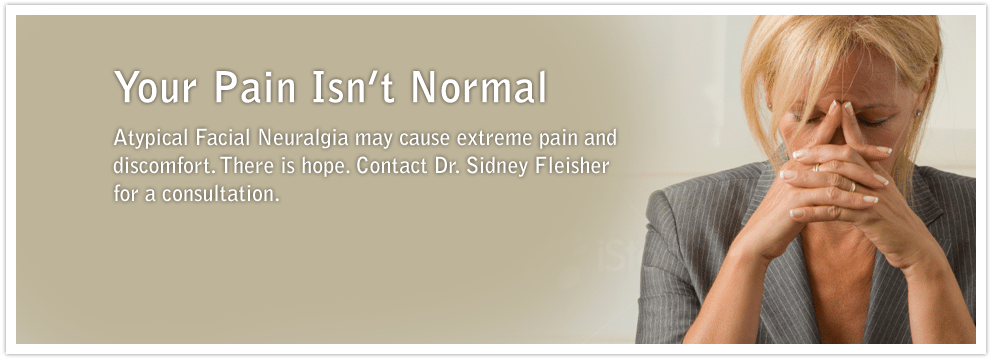What is Atypical Facial Neuralgia?
Atypical Facial Neuralgia is a complex syndrome characterized by extreme, chronic facial pain, which many times has a trigger.
Symptoms of Atypical Facial Neuralgia
Patients with AFN may have a range of various symptoms, often, one patient experiences something very different from another. Symptoms include:
- Extreme facial pain, often described as burning, aching or cramping, often limited to one side of the face
- Pain in the region of the trigeminal nerve (fifth cranial nerve, responsible for sensation in the face), sometimes extending into the upper neck or back of the scalp
- Severe Tooth Pain, without signs of decay or trauma
- Clicking or Popping Jaw
- Uneven Bite
- Stress
Possible Causes for Atypical Facial Neuralgia
There are many possible causes for Atypical Facial Neuralgia including:
- Trauma to the head or face
- Infections of the sinuses or teeth possibly occurring over an extended period, causing nerve damage
Diagnosing Atypical Facial Neuralgia
Most patients who experience Atypical Facial Neuralgia have sought treatment from physicians, neurologists and dentists without success. They have often undergone multiple dental procedures and medical tests. Diagnostic testing is extremely important to rule out pathology. Once other conditions have been ruled out, Dr. Fleisher can examine you to see if his methods will be effective.
Treatment for Atypical Facial Neuralgia
There has been no successful course of treatment for AFN. In most cases, nonsurgical methods are ineffective. Our experience with women who have been diagnosed with AFN is limited to patients who presented in our office complaining of morning headaches and neck pain. When treated for these symptoms, the trigger points in the lip disappeared with a concomitant decrease in all other symptoms.
If you have been diagnosed with Atypical Facial Neuralgia and have already visited your family physician, had an MRI or CAT scan to rule out pathology, contact our office to schedule a consultation with Dr. Fleisher.

